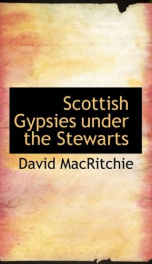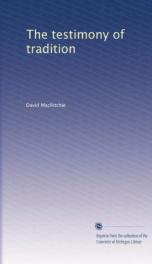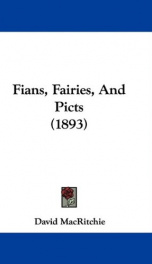scottish gypsies under the stewarts

Purchase of this book includes free trial access to www.million-books.com where you can read more than a million books for free. This is an OCR edition with typos. Excerpt from book: numerous bands of dissolute and lawless people, more especially in remote and solitary situations, where they chiefly haunted, by the very terror of their looks and language, and their known violent and revengeful temper. The state of Scotland in this respect was indeed deplorable, if we may trust the description that is given of the numbers and the manners of those vagabond fraternities, by one who was able to judge and had opportunity of knowing. Fletcher of Salton affirms, in a treatise written in 1698, that the numbers who lived as vagabonds, even in ordinary times (and in that year of dearth they were twice as many) amounted to at least a hundred thousand ; who might be seen on all occasions of public meeting, both men and women, perpetually drunk, cursing and blaspheming, and fighting with each other ; who lived without any regard or subjection to the laws of the land, or even those of God and nature ; fathers incestuously accompanying with their own daughters, the son with the mother, and the brother with the sister ;1 and of whom no magistrate could discover that ever they were baptised, or which way one in a hundred of them died. ' They were not only (says he) a most unspeakable oppression to poor tenants (who if they give not bread or some kind of provision to perhaps forty such villains in one day, are sure to be insulted by them), but they rob many poor people, who live in houses distant from any neighbourhood.' "2 It seems pretty clear that the people described by Fletcher of Salton were the Scottish Gypsies. His account may be one-sided, and indeed it is,for he ignores many other aspects of Gypsy life. But any reader of Simson's History will see that the Gypsies described by him as vagabonds and " sorners" in the eighteenth century, were very distinctly the repre... --This text refers to an alternate Paperback edition.
Info about the book
Author:
Series:
Unknown
ISBN:
1555178235
Rating:
4/5 (1)Your rating:
0/5
Languge:
English
Users who have this book
Users who want this book
What readers are saying
What do you think? Write your own comment on this book!
write a commentGenre
if you like scottish gypsies under the stewarts try:
Other books by this author
Do you want to read a book that interests you? It’s EASY!
Create an account and send a request for reading to other users on the Webpage of the book!



